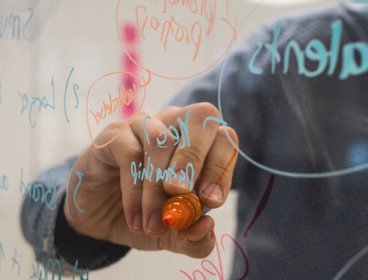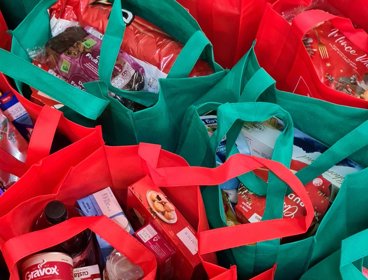By Ale Boussalem, University of St Andrews
Geographers of gender and sexualities, and queer geographers, have shown the importance of observing how LGBTQ+ (Lesbian, Gay, Bisexual, Trans and Queer) people experience and relate to space and place. A focus on these experiences and relations allows us to better understand the impact of homo/bi/transphobia on the lives of LGBTQ+ people and to recognise how queer resistance to this oppression materialises in different spaces and communities. In dialogue and in intersection with geographies of race, religion, class and disability, research into spatialisations of gender, queerness and sexualities is fundamental to analyse the entanglements between identities, difference and space at different scales and across different contexts.
In my research, I focused on the intersections of racism, Islamophobia and homo/bi/transphobia in the lives and movements of LGBTQ+ people from a Muslim background living in Brussels. My collaboration with organisations in the field was a central element of this project. Merhaba, an organisation working with LGBTQ+ people from a migratory background living in Belgium, was the collaborative partner for the research. As part of our partnership, we had regular meetings while I was planning the study, and collecting and analysing data. We talked about a wide range of aspects of the study: strategies to recruit participants, ways of ensuring their safety and well-being, interpretations of preliminary findings and how to navigate the political tensions between different groups on the Brussels LGBTQ+ scene. Merhaba’s feedback on my work was always fundamental in informing my next steps. In addition to these conversations, Merhaba supported me in recruiting participants, allowing me to access some of their activities. Towards the end of fieldwork, we co-organised and facilitated a weekend of participatory theatre activities for some members of the group.
Working directly with organisations and groups active in LGBTQ+ communities can be beneficial to geographers of gender and sexualities in different ways. Community organisations can help researchers recruit participants and give them access to spaces and activities. In addition to these practical aspects, organisations offer an extremely important perspective on the risks and potentials of researching LGBTQ+-related topics. In the case of research conducted in a specific location (as Brussels was for me), community organisations can share knowledge on the common challenges faced by the LGBTQ+ people, help map the solidarities and tensions between different groups in the community itself and give an overview on the different ways that identities and differences are collectively experienced, performed and narrated. Even more importantly, LGBTQ+ organisations can give researchers important instructions on how to conduct research ethically in the specific context – as the well-being of community members often is their priority, their insight into how to ensure that our research is not detrimental to it is invaluable.
Before embarking on my research, I naively thought that my clarity on the reasons why I wanted to have a collaborative partner and the fact that my intentions were ‘good’ would be enough to ensure a successful collaboration in the field. What I quickly realised in Brussels is that building and maintaining collaboration in research is a challenging task. First of all, it takes time. Community organisations, especially those working with and for vulnerable people, are (rightly) protective of their spaces, activities and members. “Gaining access” (to spaces, communities, activities, events) often involves a lengthy process of building trust with community organisations. This timing is not always compatible with the pressures of timed fieldwork, quick data collection and funding requirements. Second, research and community priorities might differ considerably at any given time, even when their ultimate goal (e.g. social justice) is similar. A certain degree of compromise (a setting aside of research priorities) is sometimes necessary. Finally, to allow for the benefits of a sustained dialogue with community organisations, we need to make space for genuine feedback from them. While this can sometimes validate our choices and perspectives, at other times it is very critical. Integrating this feedback into our practice means re-thinking our choices, going back to the drawing board, problematising our approaches, positions and sometimes intentions. A true collaborative approach with community organisations asks us to create space to be challenged in our role as researchers – and it is in this challenge that the biggest benefit of collaboration often stems from.
Suggestions for research
-
Collaborative approaches can improve our research by making it more ethical and accurate.
-
The benefits of this collaboration do not only entail practical aspects (recruitment and access) but also the specific insights and perspectives that are unique and specific to organisations working with LGBTQ+ people at the local level.
-
One of the most important insights that researchers can benefit from is related to community organisations’ understanding on how to do research in a way that is respectful of participants and their well-being.
-
A collaborative approach is challenging – it requires time, a willingness to interrogate our role as researchers and our assumptions on how to do ‘good research’.
How to cite
Boussalem, A. (2023) Doing research with LGBTQ+ community organisations. Working with voluntary and community groups. Royal Geographical Society (with IBG) Guide. Available at: https://doi.org/10.55203/WCWB2543
About this guide
Working with voluntary and community organisations for some is a very important way to do geography. These organisation come in various shapes and sizes and may also often be referred to as the third sector, the voluntary sector, not-for-profit organisations, community groups or the civic sector. In this guide, we share the experiences of researchers doing geography in collaboration with community and voluntary organisations. A range of topics and issues are explored from health, disability and care, through to austerity, violence, and craft, amongst others. We learn about the approaches taken by geographers in their work with community and voluntary organisations, and some of the challenges they have negotiated in the process.



